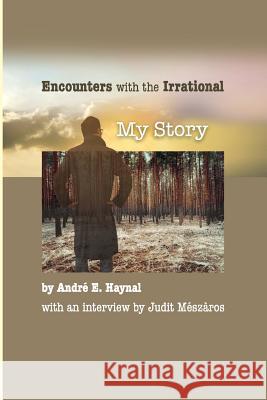Encounters with the Irrational: My Story » książka
Encounters with the Irrational: My Story
ISBN-13: 9780998532318 / Angielski / Miękka / 2017 / 184 str.
This autobiography illustrates modern psychoanalysis' view of the unconscious as a force determining various choices which turn out to be sometime not at all the ones we think to take for rational reasons. As an example, let's think about what happened to me as a penniless refugee in Vienna (Austria) after a week drifting around: "The key moments of the story, however, demonstrate all the way to the present day how tiny coincidences (the work of the Irrational ) may trigger important decisions. Walking along one of the avenues, I happened to run across one of my colleagues (a medical student from Budapest), who greeted me in a thoroughly smart outfit, coiffed hair and manicure, and a big smile. Her name was Etelka Ferenczi--a family name (no relation with the psychoanalyst Sandor who would play a major role in my life later on)-- and she was in good spirits and well dressed. What was up with her? She invited me for a cup of coffee--she had money, but where from? --and told me that she was working for a refugee organization, that they had a list that might contain the names of 1000 candidates to be admitted to Switzerland, and that she might be able to get me on the list. Who knew I might be travelling to Switzerland shortly after that?" I structured my text in three circles, the first being excerpts of an interview conducted by a colleague from Budapest (Hungary) that I call "EinfAlle," the second being a commentary, and in the third circle I develop more theoretical ideas drawn from my experience.
This autobiography illustrates modern psychoanalysis’ view of the unconscious as a force determining various choices which turn out to be sometime not at all the ones we think to take for rational reasons. As an example, let’s think about what happened to me as a penniless refugee in Vienna (Austria) after a week drifting around: “The key moments of the story, however, demonstrate all the way to the present day how tiny coincidences (the work of the Irrational!) may trigger important decisions. Walking along one of the avenues, I happened to run across one of my colleagues (a medical student from Budapest), who greeted me in a thoroughly smart outfit, coiffed hair and manicure, and a big smile. Her name was Etelka Ferenczi—a family name (no relation with the psychoanalyst Sandor who would play a major role in my life later on)— and she was in good spirits and well dressed. What was up with her? She invited me for a cup of coffee—she had money, but where from? —and told me that she was working for a refugee organization, that they had a list that might contain the names of 1000 candidates to be admitted to Switzerland, and that she might be able to get me on the list. Who knew I might be travelling to Switzerland shortly after that?” I structured my text in three circles, the first being excerpts of an interview conducted by a colleague from Budapest (Hungary) that I call “Einfälle”, the second being a commentary, and in the third circle I develop more theoretical ideas drawn from my experience.











